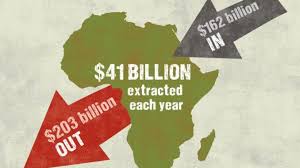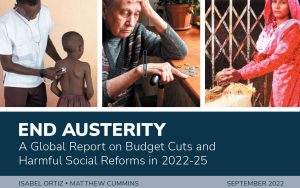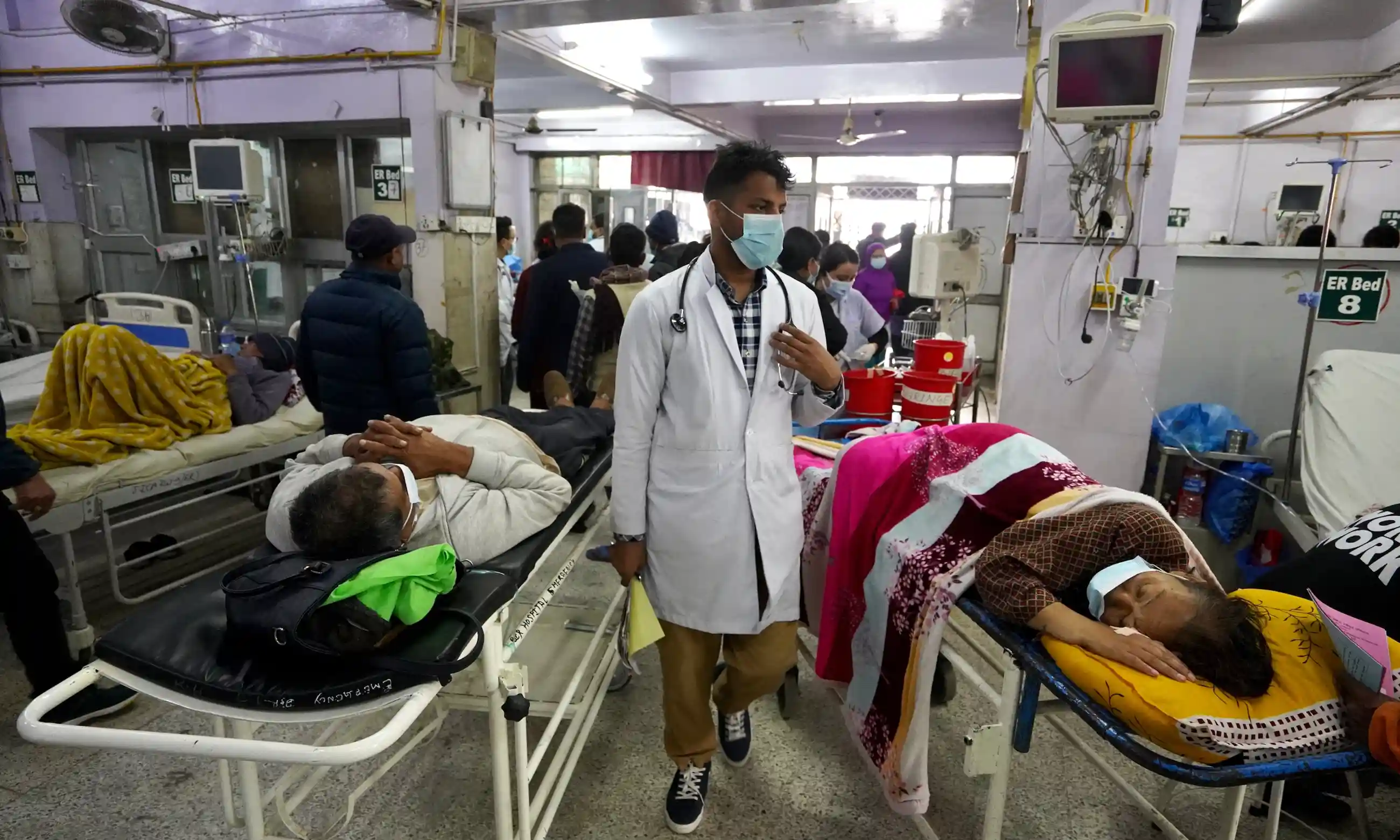The African Union, in an August 2025 report, estimates that illicit financial flows (IFFs) cost countries in Africa $88 billion per year. IFFs are illicit or illegal funds derived from criminal activities and/or illegal tax practices that are moved or transferred across countries, including international trade manipulations (the most common), tax evasion, smuggling, government corruption, and money laundering. Nearly half of these losses come from the ‘extractive sector,’ mostly mining. IFFs are fundamental drivers of economic injustice, and enormously undermine…
Category: Global Theft
Much of our global health work is defined by what we can do – or we can’t do – in the context of resource scarcity. But we also know that most countries have more than enough resources to achieve health for all. Resource scarcity is largely a myth, and the real problem is global theft of those resources. The GH community, however, rarely draws attention to the systematic theft of these resources, either by, or enabled by, people in rich countries. Rich individuals, including those considered global health saviors, and their large corporations move money from accounts in one country to another in order to avoid paying taxes, and not contributing their fair share to efforts that could improve global health. Other examples include expropriation of raw materials, like water, without fair compensation, patents and trade regimens that are highly unfair, currency speculation, corporate practices that engender poverty wages and dangerous working conditions, and environmental devastation.
Malawi and Mali Demand Unpaid Taxes and Royalties from Multinationals
BBC news recently reported that the governments of Malawi and Mali are demanding hundreds of billions of dollars from U.S.- and Australia-based multinationals to compensate for unpaid taxes and royalties over the past 10 years. Charles Gitonga and Andre Lombard report that the Malawi government has accused Colombia Gem House, U.S.-based gemstone company, of not paying fairly for rubies exported over the last 10 years. The government is also demanding $4 billion from French gas giant TotalEnergies in unpaid revenue…
IMF imposing austerity on new Sri Lanka government
The new wave of IMF-imposed austerity measures is now reaching Sri Lanka, and their newly elected center-left government is challenging the usual IMF terms of social welfare cuts, rise in the VAT, and other measures that have the effect of doubling the cost of living and reducing the real wages by half for those that have formal employment. These are the standard IMF free-marked driven policies that typically benefited the elite in the country, while the burden typically falls on the…
Global Responsibility and Consequences of Africa’s Debt Burden
Africa’s debt crisis creates severe economic and social challenges across the continent, with countries like Kenya, Nigeria, and Uganda struggling to manage crushing foreign debt that has surpassed $1.1 trillion. Governments are cutting public services to raise funds for debt repayments, leading to widespread social instability, protests, and economic stagnation. The situation is exacerbated by the complex web of creditors, including private bondholders and China, which now holds a significant portion of African debt. Western lenders, international financial institutions, and…
Kenya’s protests: The violent cost of IMF debt
Recent demonstrations against Kenya’s Finance Bill 2024 were met with deadly repression. At least 39 civilians were killed and hundreds injured by Kenyan police while protesting the proposed 346 billion Kenyan shillings ($2.6 billion) tax increase. This Bill was intended to generate government revenue, a condition of the $2.34 billion International Monetary Fund (IMF) 38-month loan issued to Kenya in April 2021. The proposed tax levies would have increased the price of basic commodities including bread, sugar, and car petroleum,…
Fair Taxation: Urgent Call for action in G20 and UN
Oxfam’s February 2024 analysis reveals a troubling trend: the wealthiest 1% in G20 countries are benefiting from significantly reduced tax rates, widening the gap between the rich and the rest. This alarming disparity, coupled with a decline in democracy, underscores the urgent need for policy reform. As finance ministers convene in São Paulo, they must prioritize fair taxation policies that promote equality and support for all citizens. The proposal to implement a 5% wealth tax on multimillionaires and billionaires could…
Stolen Wisdom: Ending Western Exploitation of Indigenous Knowledge
As of May 2024, the Diplomatic Conference on Genetic Resources and Associated Traditional Knowledge unfolds in Geneva, a crucial conversation is taking place: how to end the long-standing exploitation of traditional knowledge and genetic resources by wealthier nations. For centuries, indigenous peoples have been the guardians of a vast repository of knowledge about medicinal plants, agricultural practices, and ecological wisdom. Unfortunately, much of this priceless knowledge has been appropriated by the West without proper acknowledgment or compensation. The conference aims…
UN Tax Reform offers hope to Low Income Countries
In late November 2023, developing countries at the UN won a historic vote to set up a tax convention in spite of resistance from rich countries. This Guardian editorial (see below) explains how poor nations’ ability to feed, educate and provide healthcare to their people is hobbled by illicit and hidden movements of capital worth billions each year. The Tax Justice Network (also below) documents how countries around the world are losing US$480bn in tax a year to tax abuse, with…
Countries on course to lose $4.7 trillion to tax havens over next 10 years
The tax justice network recently released its 2023 State of Tax Justice report that estimates that, if no action is taken, countries will lose nearly US$5 trillion in tax to multinational corporations and wealthy individuals using tax havens to underpay tax over the next 10 years. Lower incomes countries’ tax losses ($46 billion) are equivalent to more than half (56 per cent) of their public health budgets. Check out the report! The State of Tax Justice 2023
UK Job Offers Threaten Nepal’s Hospitals: Concerns Grow Over Devastating Impact on Healthcare System
Nepal’s public health system is plagued by staff shortages, dilapidated infrastructure, overcrowded wards, long wait times, and meager pay, making it a country that the WHO has designated to not be targeted for healthcare professional recruitment. Despite this, the UK’s National Health Service (NHS) has signed a deal with Nepal to recruit Nepali nurses, a move that healthcare experts warn could worsen Nepal’s severe staffing crisis. While up to 100 Nepali nurses will be recruited in the pilot phase, the…








